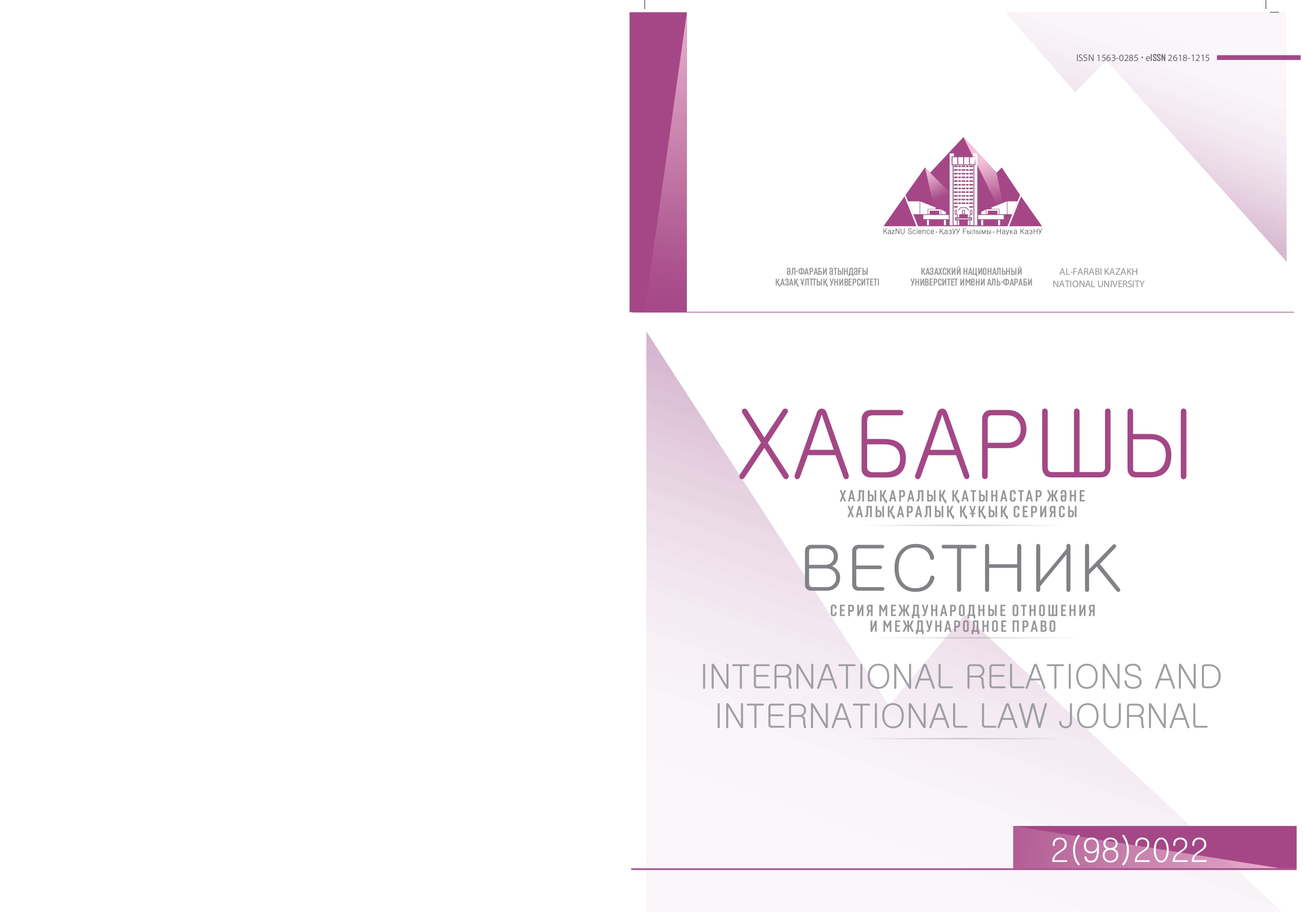The History of Turkey’s “Soft Power” in Central Asia
DOI:
https://doi.org/10.26577/IRILJ.2022.v98.i2.09Abstract
The article is devoted to the consideration of the issues of the geopolitical confrontation between Russia and the Ottoman Empire in Central Asia, since the mid-19th and early 20th century. The strengthening of Russia’s colonial pressure in Central Asia provoked the growth of anti-colonial protests in the region. Considering the issues of the struggle of world powers for dominance in the region, most researchers pay little attention to the issues of the Russian-Turkish confrontation, leaving this issue in the shadow of the «Big Game» of Great Britain and Russia. In particular, the researchers consider the issues of the Russian-Turkish confrontation geographically limited to the region of the Caucasus and the Balkan Peninsula. The threat of Russian colonization forced the peoples of Central Asia to seek allies, among whom the Ottoman Empire was preferred. For Turkey, the support of the national liberation movements of Muslim peoples was a kind of bargaining chip in the confrontation with Russia. Turkey sought to compensate for the failures in the Balkans and the Caucasus by supporting anti-Russian sentiments in Central Asia. Turkey was not able to openly speak out against Russia and provide direct military assistance to the East, so Turkey’s role was limited to conducting anti-Russian propaganda. Experiencing difficulties in the confrontation with the great powers of that era, Turkey was not able to provide sufficient assistance, but the very fact of the presence of Turkish influence on the national liberation movements is an important area for further research. It can also be argued that the threat of Turkish influence largely determined the policy of Tsarism and the Bolsheviks in Central Asia.
Key words: national liberation movements, colonialism, Ottoman Empire, pan-Turkism, Young Turks, Ottomanism, national identity, “Big Game”, pan-Turanism, Jadidism.














